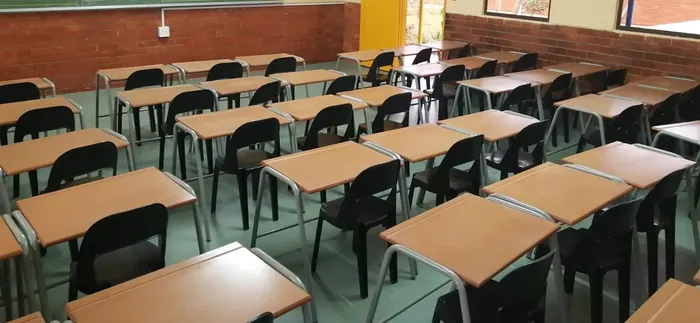Controversy at Clairwood Secondary: school rental practices under scrutiny
Textile company

Image: File
THE MK Party has confronted Clairwood Secondary School for renting classrooms to a textile company allegedly employing undocumented foreign workers.
They have also raised concerns about pupil safety as the company operates during school hours.
While the school cited financial necessity, education authorities have weighed in on the legality and ethics of such arrangements in schools facing budget constraints.
The incident went viral on social media last week after video footage emerged after members of the MK labour desk confronted the principal.
They accused the school of renting out classrooms to a textile company employing undocumented foreign workers.
The principal said they had rented out the classrooms in a bid to raise funds for the school.
Agape Xulu, the regional secretary for the MK Party, said the issue was not with renting out the classrooms but the undocumented foreign workers.
“We went to the school after we found out that they were leasing a part of a building to a textile company that hired undocumented foreigners. They work during the day, while our children are at school. Our concern is with these undocumented foreigners being around our young male and females. What if a situation occurs, like rape. We will never be able to locate them to hold them accountable.
“We also need to prioritise our own people instead of foreigners when it comes to jobs. Our people get upset and that is when xenophobia begins. The principal said he was new at the school and had just continued with an existing contact. He emphasised that the school needed the funds and this was their way of fundraising.
“How can the principal allow a company that has undocumented foreigners rent a place in the school? It is wrong and dangerous,” said Xulu.
Linda Shezi, president of the KZN Principals Association, said that renting out classrooms was based on a principal's decision.
“Renting out facilities of the school is a School Governing Body (SGB) competency and a principal's sole prerogative. Fundraising falls under SGB responsibility.
“SGBs should do due diligence when executing such responsibilities and this includes among other things, vetting who the school “does business with”. There are regulations to follow regarding what can or cannot be allowed on school premises for the safety and security of pupils and staff.
“There are schools that have hired out parts of their fields for car shows. It is vital that such contracts are scrutinised by SGBs for no compromise on safety and security and that activities are legal,” said Shezi.
Thirona Moodley from NAPTOSA said renting out classrooms should not be an issue if it benefitted the school.
“Schools belong to the communities and they should be used for the development of the community. The South African Schools Act (SASA) gives the SGB the powers to allow reasonable use of the school for community, social and school fund-raising purposes. It also allows for the SGB to charge a tariff for use of the school.
“Clearly, SASA does not allow for the renting out of school property for commercial activities. Schools must be very careful as to the nature of activities they allow on the school property. Health and safety must be a priority.
“NAPTOSA is aware of the financial situation schools find themselves in. The department has not been paying schools their annual allocations. If they have been paid, it was not for the full allocation. Schools are struggling to collect school fees and in desperation have turned to creative means to supplement their income,” said Moodley.
Labby Ramrathan, an educational expert, said due to budget constraints, schools had to look for other ways to raise money.
“Schools are driven to explore alternate funding to manage their operational expenses largely because of no payment of school fees by parents, creating a budget deficit. Schools have been known to rent out spaces for religious purposes, parking facilities and other activities that have minimal effects on the school operations.
“However when it comes to industrial and other manufacturing sites for small business, extra precautions need to be considered, like the kinds of materials being used, exposure to the school community of dangerous goods, access to school premises, time of usages, all of which needs thorough investigations before usage,” said Ramrathan.
The KZN Department of Education did not comment at the time of going to print.